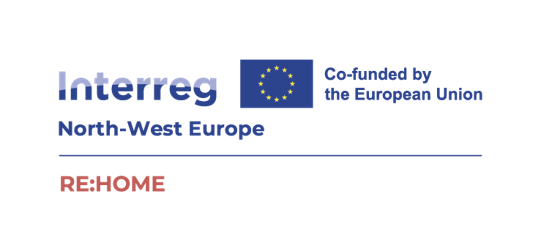RE:HOME
Smart technologies for personalized home care for neurological pediatric patients
From until
Interreg North-West Europe
What?
One in 500 children suffers from cerebral palsy or CP: brain damage that occurs during pregnancy or in the first years of life. These children often have to follow extensive rehabilitation programs, which continue in hospitals or in a therapist’s practice. No one likes going to a hospital, and certainly not children. The research project RE:HOME aims to allow young patients with CP to rehabilitate as much as possible, with the ultimate goal of making comfortable walking a matter of course for every child.

Our role?
M&C will actively support the implementation of robotic-assisted training in the motor rehabilitation of neurological paediatric patients by ensuring the progress of the technical developments and clinical validation of the powered ankle foot orthosis. M&C will explore the transition of rehabilitation technology from clinic to home rehabilitation and will support the testing and implementation of the home programmes.
M&C is responsible for performing necessary technical adaptations and optimisation of the powered ankle foot orthosis. Aspects such as modularity, mobility of the hardware, automation of the software, ergonomics, safety, and user and therapist interactions will be evaluated, enhanced and implemented in the design of the powered ankle foot orthosis. These developments will be integrated into generations 1 and 2 of the technology.
M&C, in collaboration with clinical partners, will continue the assessment of the clinical feasibility initiated with the development of PAFO - generation 0 within the MOTION project (PAFO stands for Powered Ankle Foot Orthosis). We will evaluate the clinical performance of the improved versions of the technology to verify and demonstrate its usability and effectiveness.
M&C contributes to the creation of the joint learning and training scheme by providing necessary technical information about the PAFO and developing practice guidelines for clinical implementation.
M&C will organize technical demonstration workshops at the facilities of Thomas More campus Geel and clinical demonstration workshops at the facilities of clinical partners.
From a management viewpoint, M&C is leading WP1– Developing technologies, including the exoskeleton modules, smart garments, and IT platform.
Goals
- To enhance the mobility and overall quality of life of pediatric patients suffering from gait disabilities due to neurological conditions. This can be achieved by leveraging robotic-assisted rehabilitation .
- To evaluate the potential of PAFO as a tool for robotic-assisted therapy, which can complement traditional motor rehabilitation by providing repetitive, accurate, and adaptable assistance levels
- Learning materials developed during the project have significant relevance depending on the stakeholders:
- providing the necessary knowledge for further research and technical development,
- increasing awareness and providing clinicians with the necessary expertise to incorporate exoskeleton-assisted therapy and telerehabilitation into their practice,
- increasing awareness and providing patients, parents and care providers with the necessary knowledge to enhance acceptance of the technology and participation in robotic-assisted rehabilitation
- contributing to the development of appropriate policies, regulations, and reimbursement strategies.
Results?
- Functional powered ankle foot orthosis tested with neurological pediatric patients and verified by clinical professionals involved in the rehabilitation chain
- Automated design workflow for generating individualized cuffs to attach exoskeletons to the human body, ensuring precise alignment of mechanical components
- Rehabilitation protocol for powered ankle foot orthosis
- Technical learning module about the PAFO system and clinical learning scheme on PAFO-assisted rehabilitation.
Team
Luiza Muraru
Curious about (bio)mechanical assessment of orthotics and prosthetics. Engaged in researching and implementing tailored and innovative solutions within orthopaedic technologies
Roy Sevit
Passionate about using technology that supports humans and all their discomforts, creative and out-of-the-box!
Daniel Morales
Passionate about design and mechanisms, will 3d scan you and make you an exoskeleton if you let him.
Koen Janssens
Seeks to create a healthy body for all. Passionate about anatomy. Physiotherapist, coach, cook, and (forced) K3-lover
Tom Saey
Passionate about automation of personalised 3D design, 3D scanning and 3D printing in healthcare applications.
